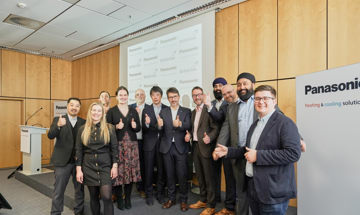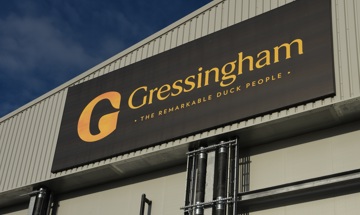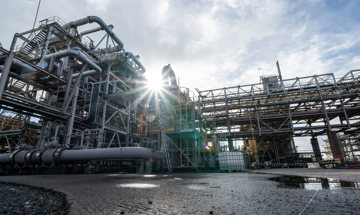British Gas has partnered with sustainable cloud computing provider, heata, on an innovative trial to explore how harnessing waste heat generated by computer servers can save households money on their bills.
heata’s innovative model distributes cloud computing workloads to servers in homes. In a data centre, the heat generated during processing is a waste product, and energy-intensive cooling systems are required to stop the servers from overheating.
To overcome this, heata has created a ‘virtual data centre’ - a network of servers distributed in people’s homes. Each server is attached to the home’s hot water cylinder, and as they process data, the heat they generate is transferred into the water. This reduces the energy needed to heat water in the home, and as this is typically provided by gas boilers, it reduces the amount of gas used, lowering the carbon impact as a result. heata pays for the electricity the heata unit uses, which means the household pays less to heat their hot water.
"Innovative projects like this are another example of how the UK is becoming a leader in cutting carbon emissions. heata is a true pioneer in the way it has developed a solution that can reuse waste heat and deliver significant cost and carbon savings."
Paul Lodwidge, Head of Energy Product & Propositions from British Gas
As part of a three-month trial, 10 heata units will be installed in the homes of British Gas employees, and the energy provider’s computing workloads will be processed on these units. As a result British Gas will be providing free hot water for its own employees as a byproduct of their own cloud compute.
The trial will provide feedback around performance and customer experience, as well as demonstrating the associated CO2 and energy cost savings to further co-develop customer propositions in 2025.
According to heata, the devices can provide up to 4kWh of hot water per day, with the technology expected to save households up to £340 per year when offsetting electrically heated hot water, and up to £120 when offsetting gas heated hot water.
Chris Jordan, Co-founder of heata said: “We’ve created a solution that enables us to reuse the waste heat from cloud compute to provide free hot water for families in our communities. Our reliance on data centres is only going to grow, as they are fundamental to training and running artificial intelligence. By thinking differently about how we build and use data processing infrastructure, we can use a byproduct of this boom to help support our communities and reduce the carbon impact of compute at the same time.
“This trial with British Gas is an exciting step and we hope other businesses will follow suit. With a small change to where they place their data processing, businesses throughout the UK could be supporting their communities as a byproduct of their cloud computing.”
Paul Lodwidge, Head of Energy Product & Propositions from British Gas said: “Innovative projects like this are another example of how the UK is becoming a leader in cutting carbon emissions.
“heata is a true pioneer in the way it has developed a solution that can reuse waste heat and deliver significant cost and carbon savings. We’re proud to be able to support them with this latest trial and will work together to share insights and learnings that will enable the business to scale-up its offering.”
About heata
heata is redefining the benchmark in sustainable cloud compute. heata distributes its servers within homes, creating a ‘virtual data centre’ where the waste heat from data processing is re-used to offset domestic hot water heating, providing free hot water for people who need it. Data processing is fundamental to our modern world, we believe it can also help support the need for heat in society. Imagine businesses throughout the UK supporting their communities as a byproduct of their cloud computing. Heat is useful. Why waste it?

News
British Gas Announces Strategic Partnership with NIBE to Enhance Heat Pump Service and Support
Sustainability

News
British Gas Partners with Panasonic to Provide Service & Maintenance for Panasonic Aquarea Air Source Heat Pumps.
Sustainability

News
Centrica Business Solutions powers Gressingham Foods into a sustainable future
Sustainability

News
Centrica Business Solutions accelerates Solihull Hospital’s journey to net zero with new energy centre
Sustainability

News
Spirit Energy’s Morecambe Gas Hub Marks 40 Years of Powering UK
Sustainability

News
Large scale hydrogen storage sites could reduce customer energy costs by £1bn per year
Sustainability
